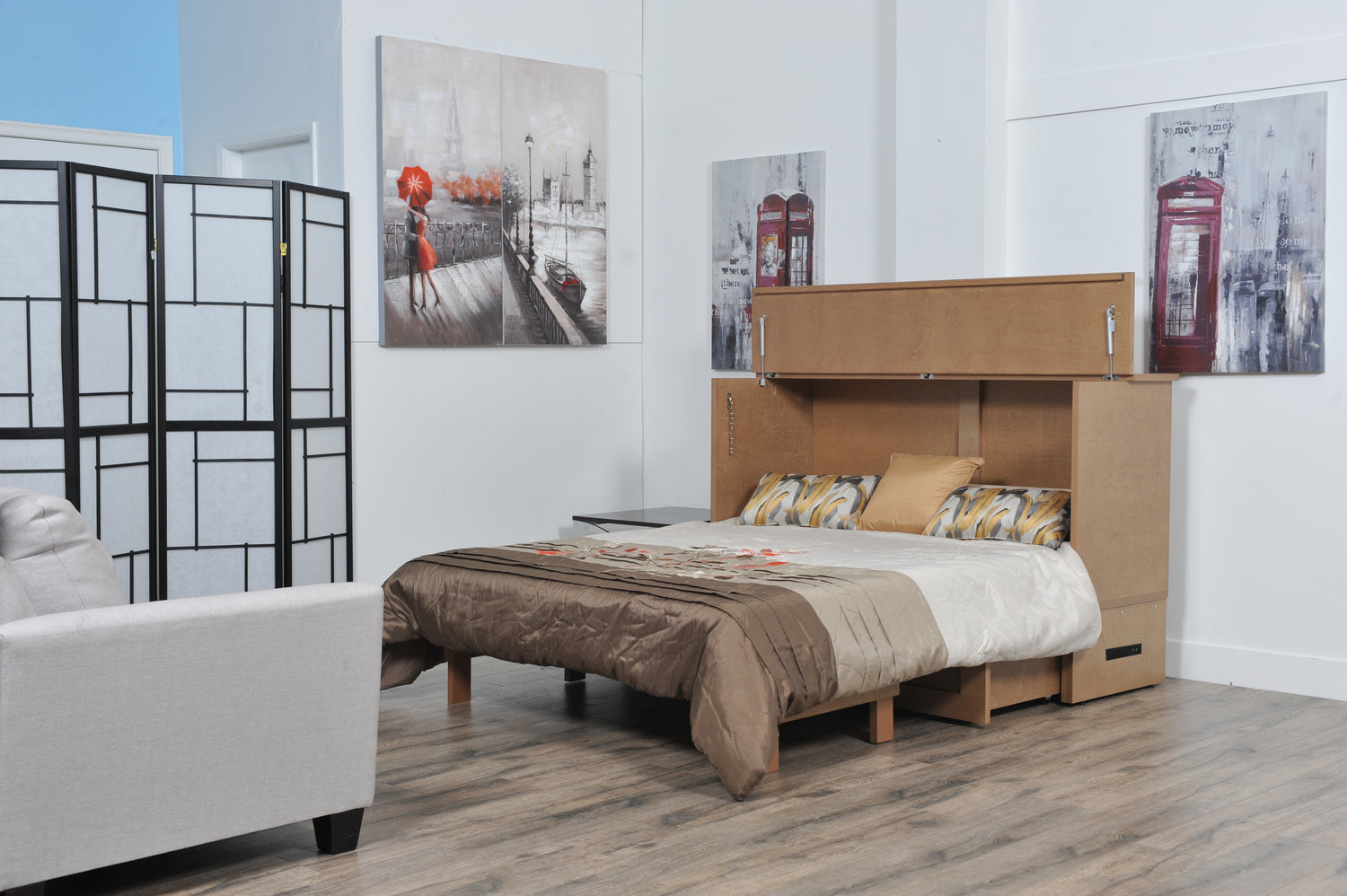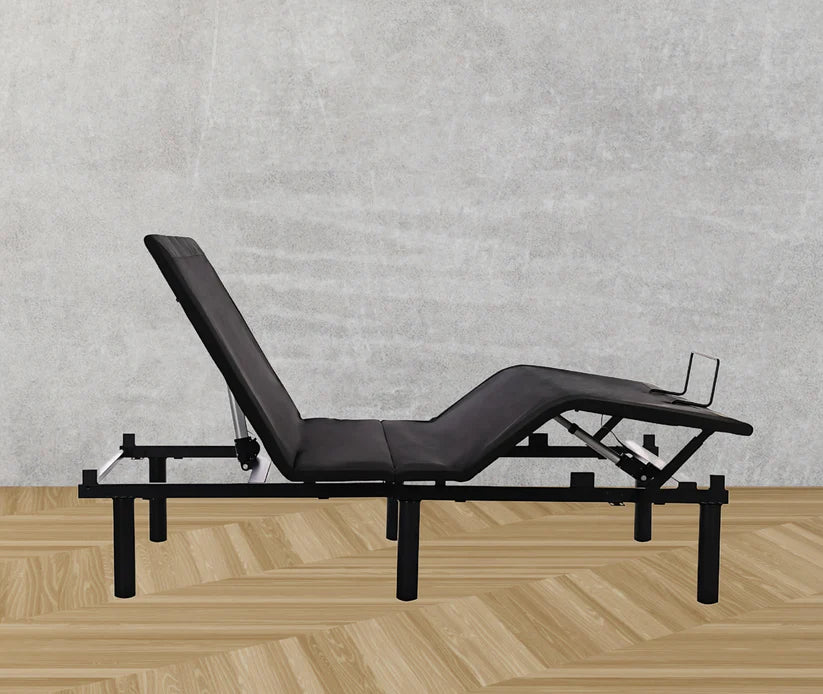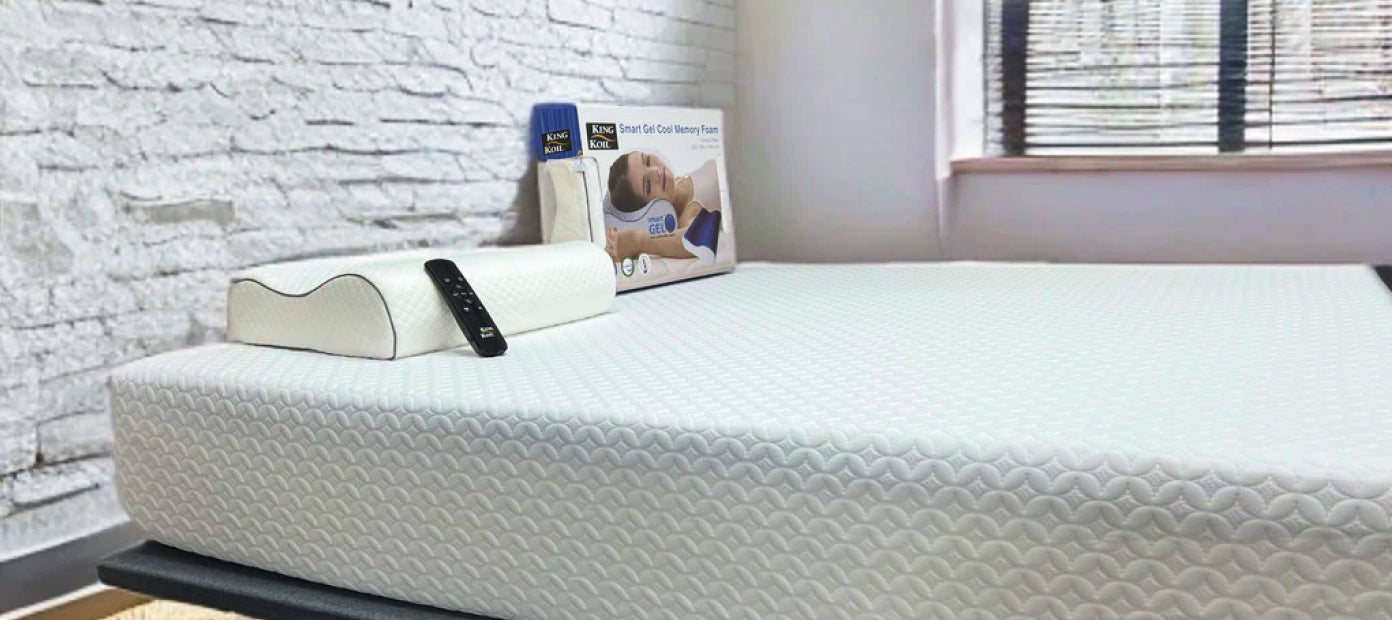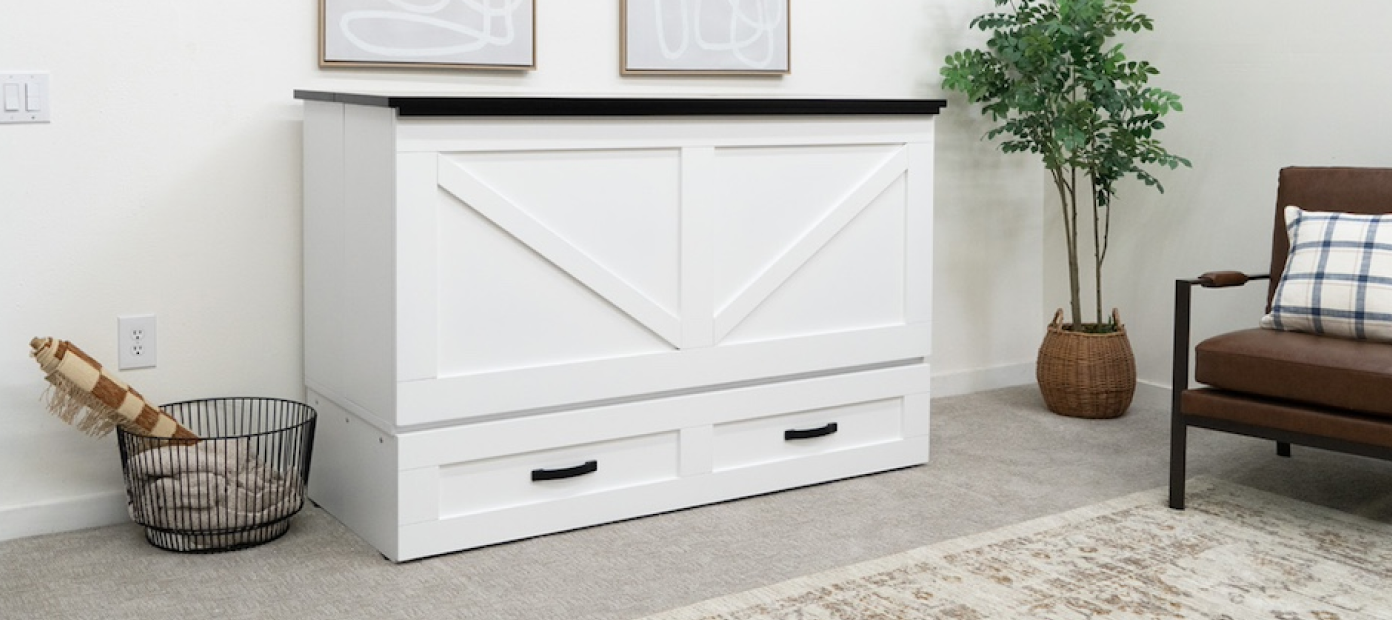What Are Sleep Personalities?
Sleep personalities are more than just buzzwords; they're a scientific way to understand the unique factors that influence how you sleep. These factors can include your circadian rhythm, sensitivity to environmental stimuli, and even your psychological makeup. By identifying your sleep personality, you're essentially decoding the individualized "rulebook" your body and mind follow when transitioning from wakefulness to sleep and vice versa. This rulebook can include your optimal sleep and wake times, the type of sleep environment you thrive in, and the pre-sleep activities that best prepare you for a restful night.
Understanding your sleep personality can offer invaluable insights into how to improve your sleep quality. It can help you make targeted changes to your sleep habits, environment, and even your lifestyle. This isn't a one-size-fits-all approach; it's a highly personalized roadmap to better sleep and, by extension, a better quality of life.
The Seven Major Sleep Personalities: Expanded Tips

The Night Owl
Characteristics: You find yourself most active and creative during the late-night hours, and mornings are your arch-nemesis.
Ideal Sleep Time: 1 a.m. - 9 a.m.
Tips:
-
Blackout Curtains: Invest in high-quality blackout curtains to simulate nighttime conditions.
-
Scheduled Screen Time: Limit screen time an hour before your ideal sleep time to help your body produce melatonin.
-
Nighttime Routine: Develop a calming nighttime routine that signals your body it's time to wind down.
The Early Bird
Characteristics: You're the person who's already accomplished half a day's work while everyone else is hitting the snooze button.
Ideal Sleep Time: 9 p.m. - 5 a.m.
Tips:
-
Natural Light: Make the most of natural light in the morning to reset your internal clock.
-
Caffeine Cut-off: Limit caffeine consumption to the early part of the day to avoid sleep disturbances.
-
Evening Wind-down: Start winding down at least an hour before bed with activities like reading or taking a warm bath.
The Light Sleeper
Characteristics: The slightest noise or change in lighting can wake you up, and it's often hard to fall back asleep.
Ideal Sleep Time: Varies
Tips:
-
Soundproofing: Consider soundproofing your room or using a white noise machine to drown out disturbances.
-
Quality Bedding: Opt for hypoallergenic pillows and breathable sheets to minimize discomfort.
-
Mindfulness Techniques: Use mindfulness or meditation apps to help you fall back asleep if you wake up during the night.
The Deep Sleeper
Characteristics: Once you're out, you're out. Thunderstorms and alarm clocks have nothing on you.
Ideal Sleep Time: Varies
Tips:
-
Safety Measures: Since you're hard to wake, ensure safety measures like smoke alarms are in working condition.
-
Temperature Control: A cooler room can improve the quality of your deep sleep.
-
Alarm Strategy: Use a vibrating alarm clock or one with escalating volume to ensure you wake up on time.
The Inconsistent Sleeper
Characteristics: Your sleep schedule is all over the place. Some nights you're an Early Bird, and others you're a Night Owl.
Ideal Sleep Time: Varies
Expanded Tips:
-
Sleep Schedule: Try to standardize your sleep and wake times as much as possible.
-
Nap Wisely: If you need to nap, keep it short and earlier in the day to not disrupt your sleep cycle.
-
Meal Timing: Avoid heavy meals close to bedtime, as this can affect your ability to fall asleep.
The Stress Sleeper
Characteristics: Stress and anxiety often keep you awake, leading to a vicious cycle of stress-induced insomnia.
Ideal Sleep Time: Varies
Tips:
-
Stress-Reduction Techniques: Incorporate stress-reducing activities like meditation or deep-breathing exercises into your pre-sleep routine.
-
Limit Stimulants: Reduce intake of stimulants like caffeine and sugar, especially in the evening.
-
Professional Help: If stress and anxiety are severely impacting your sleep, consider consulting a healthcare provider for targeted treatment options.
The Sensitive Sleeper
Characteristics: You're sensitive to external factors like room temperature, bedding material, and even the pajamas you wear.
Ideal Sleep Time: Varies
Tips:
-
Material Matters: Opt for breathable, natural materials for both your bedding and sleepwear.
-
Room Conditions: Invest in a good quality air purifier and humidifier to create an optimal sleep environment.
-
Personal Comfort: Personalize your sleep space with comforting items like a favorite pillow or a soft rug to step onto in the morning.
By delving into the specifics of each sleep personality, you can tailor your sleep environment and habits to fit your unique needs. This is more than just a guide; it's your personalized blueprint for better sleep.
How to Identify Your Sleep Personality

Step 1: Keep a Sleep Journal
For at least a week, jot down the following:
-
What time you go to bed
-
What time you wake up
-
Quality of sleep (rate it on a scale of 1-10)
-
Any nighttime awakenings or disturbances
This will give you a baseline understanding of your sleep patterns.
Step 2: Take Online Assessments
There are several reputable sleep quizzes and assessments available online. These can provide additional insights into your sleep personality. Look for quizzes from trusted sources like sleep organizations or medical websites.
Step 3: Monitor Your Energy Levels
Pay attention to when you feel most awake and when you start to feel tired. This can help you identify whether you're a Night Owl or an Early Bird, for example.
Step 4: Consult a Sleep Specialist
If you're still unsure or if you're experiencing sleep issues, it may be beneficial to consult a sleep specialist. They can perform tests like polysomnography to provide a more in-depth understanding of your sleep personality.
Tailoring Your Sleep Environment as per your Sleep Personalities
Creating the perfect sleep environment is crucial for a good night's sleep. But what's perfect for one person may not be for another. That's why understanding your sleep personality can be a game-changer. Here's how to tailor your sleep environment based on your sleep personality:
For Night Owls:
- Blackout Curtains: To mimic nighttime conditions, invest in high-quality blackout curtains that block out morning light.
- Blue Light Filters: Install blue light filters on your electronic devices to reduce eye strain and promote melatonin production.
- Quiet Time: Use noise-cancelling headphones or earplugs to block out early morning noises that could disrupt your sleep.
For Early Birds:
- Smart Lighting: Use programmable smart lighting that gradually brightens in the morning, mimicking natural sunlight to help you wake up.
- Morning Exercise Space: Create a small area for morning exercise to help you wake up and stay energized.
- Calm Evenings: Use dimmer switches or smart bulbs to lower the lighting as you approach bedtime, signaling your body that it's time to wind down.
For Light Sleepers:
- White Noise Machine: A white noise machine can help drown out disturbances like traffic or noisy neighbors.
- Quality Bedding: Choose hypoallergenic pillows and breathable sheets to minimize discomfort and potential allergens.
- Soft Lighting: Opt for soft, warm lighting options that can be easily turned off without getting out of bed, to avoid disrupting your sleep if you wake up during the night.
For Deep Sleepers:
- Multiple Alarms: Use a gradual alarm clock that starts softly and becomes louder, or even a vibrating alarm clock to ensure you wake up on time.
- Temperature Control: Invest in a smart thermostat to keep your room at a cool temperature, improving your deep sleep quality.
- Safety Measures: Make sure safety devices like smoke alarms are in working condition, as you may not wake easily in case of an emergency.
For The Inconsistent Sleeper:
- Sleep Schedule: Use a sleep app to remind you to go to bed and wake up at consistent times, even on weekends.
- Nap Wisely: Create a cozy napping nook but limit naps to 20-30 minutes and earlier in the day.
- Meal Timing: Avoid heavy or large meals close to bedtime, as this can affect your ability to fall and stay asleep.
For The Stress Sleeper:
- Stress-Reduction Zone: Create a corner in your room for stress-reducing activities like meditation or deep-breathing exercises.
- Limit Stimulants: Keep caffeine and sugar-laden snacks out of the bedroom to avoid temptation.
- Comfort Items: Include comforting items like soft blankets or photos that evoke happy memories to help reduce stress.
For The Sensitive Sleeper:
- Material Matters: Choose bedding and sleepwear made of natural, breathable materials like cotton or bamboo.
- Room Conditions: Use an air purifier and a humidifier to create an optimal sleep environment.
- Personal Comfort: Add personal touches like a favorite pillow or a soft rug next to your bed to make the space more comforting.
By tailoring your sleep environment to fit your unique sleep personality, you're not just setting the stage for better sleep—you're setting the stage for a better, more energized you. So go ahead, make these changes and drift into the dreamland you've always wished for.
FAQs for Sleep Personalities
Q: Can my sleep personality change over time?
A: Yes, factors like age, lifestyle changes, and stress levels can influence your sleep personality.
Q: How quickly will I see improvements in my sleep?
A: This varies from person to person. Some may see improvements within a week, while others may take longer.
Q: Is it bad to have a specific sleep personality?
A: Not necessarily. The key is to understand your sleep personality and make adjustments to improve your sleep quality.
Q: Can I have a mix of different sleep personalities?
A: Absolutely. Many people find that they exhibit traits from multiple sleep personalities. The goal is to identify your dominant traits and tailor your sleep environment accordingly.
Understanding your sleep personality is the first step toward a better night's sleep. It's not just about getting more sleep; it's about getting better sleep. So, if you're tired of being tired and have the means to invest in your sleep health, this guide is your golden ticket to dreamland.
Sweet dreams!






Leave a Comment
Your email address will not be published. Required fields are marked * Comments must be approved before they are published.